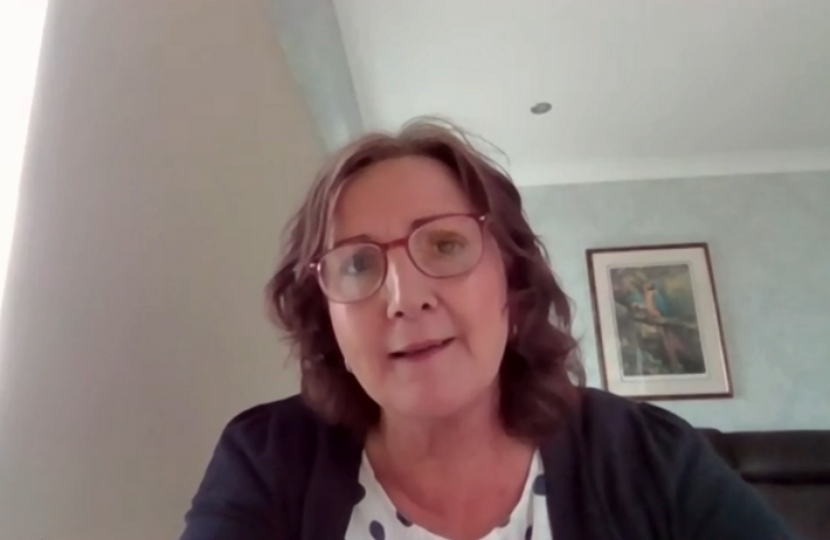
Janet Finch-Saunders MS, Welsh Conservatives' Shadow Minister for Social Care: Diolch, Llywydd. Minister, 1,097 patients or individuals were discharged to care homes without a COVID-19 test in March and April. On Sunday, you mentioned that there is no evidence to suggest this caused any increases in COVID cases or deaths. In relation to mortality rates and causes, there was a promise to issue an interim report before recess. Will this be looking very closely at the impact of discharges on care homes? What do you say to care home owners who have provided oral evidence such as, 'The people who were discharged from hospital were not tested because they only displayed the symptoms once they got to us'? I have established that 188 homes in north Wales had patients discharged to them in the nine weeks from 16 March. Will your interim report cross reference discharge data with that of care homes that have recorded cases of COVID-19?
Minister for Health and Social Services: Ordinarily, Llywydd, questions from Janet Finch-Saunders are for the deputy, but I think it's clear today this is for me. When it comes to the interim report that I still want to have published before we go into recess, it plainly won't be going into the level of individual detail that the Member questions.
What we will do, though, is we'll want to try to understand what has happened, both in the choices that we made at the point in time when the NHS was at real risk of being overrun if we didn't prepare—. That's why I took the decision in the middle of March to pause a range of activity and for hospitals to create space and time for staff to retrain to save lives. It's also why we've taken a range of measures throughout the pandemic to support not just the residential care sector but the broader health and social care environment. I think the interim report will have a range of lessons for the Government and more broadly. As I say, there's more learning to take from that.
When it comes to the discharge without coronavirus tests, as I've said on a number of occasions, that was because that was the state of the current advice. The decision that I took, based on that advice, was that at that point in time people without symptoms should not be tested. However, it is worth all of us remembering that a range of those people discharged were being discharged to return to their own home. I think it's important that we support people to return and be cared for in their own home as we look to support the wider care home sector. That's the approach we'll continue to take—to take learning from what's happened and to apply that to the future.
Janet: Thank you, Minister. Now, it's not just me who is concerned about care homes. The older people's commissioner's report, 'Care Home Voices', has requested step-down facilities to support safe discharges from hospital, and found that the limited availability of testing was a cause of significant worry. From 15 June, all care home staff were to be offered a weekly test for a four-week period. Will you extend this? In the latest week, 49.6 per cent of test results authorised in NHS Wales laboratories were returned within a day, and 74.1 per cent within two days. Why are the percentages getting smaller, and what specific measures will you take to reverse the trend?
Minister: I'll deal with the last point first. When it comes to improving testing turnaround, it's a real concern of myself and the Government and the health service. We have an improvement programme in place identifying areas to make a practical difference to the operational delivery to speed up testing turnaround times. There's already action in place in terms of courier services and more action taking place, together with colleagues in Public Health Wales, to improve the efficiency within our labs.
When it comes to the broader approach, we will be publishing a revised testing strategy. I'm expecting some advice for me to consider and make a decision upon, and I expect to have that testing strategy published before the end of next week. So, we'll continue to learn from evidence and from experience as we look to revise our approach for the future, with the sole focus of saving lives and helping Wales to safely come out of lockdown.
Janet: Thank you again. Now, from many people I've spoken to in the social care sector and care home staff, they feel badly let down by the First Minister. Do you agree with me that he should apologise for failing to make the £500 payment announcement without contacting HMRC or clarifying whether the bonus would affect any benefits before making the announcement, or is this down to you? Should he urgently provide a date for when the bonus will be paid, stop dithering, and use Welsh Government's powers and funding to gross up the payment so to ensure that social care workers benefit by at least this £500? I would also like to see him ensure that community hospice staff are eligible for the bonus. Do you agree with those sentiments, health Minister?
Minister: Well, as you'll recall from listening to the First Minister earlier, we continue to talk with the UK Government to try to make sure that social care workers in Wales receive the full £500. I do not think that it would be a good day for HMRC if they picked the pocket of poorly paid workers in the social care sector, and we will look to exhaust all of the avenues of discussion before making any further choice, but it is a matter within the hands of the UK Government. This payment should not be a windfall for the UK Treasury.

